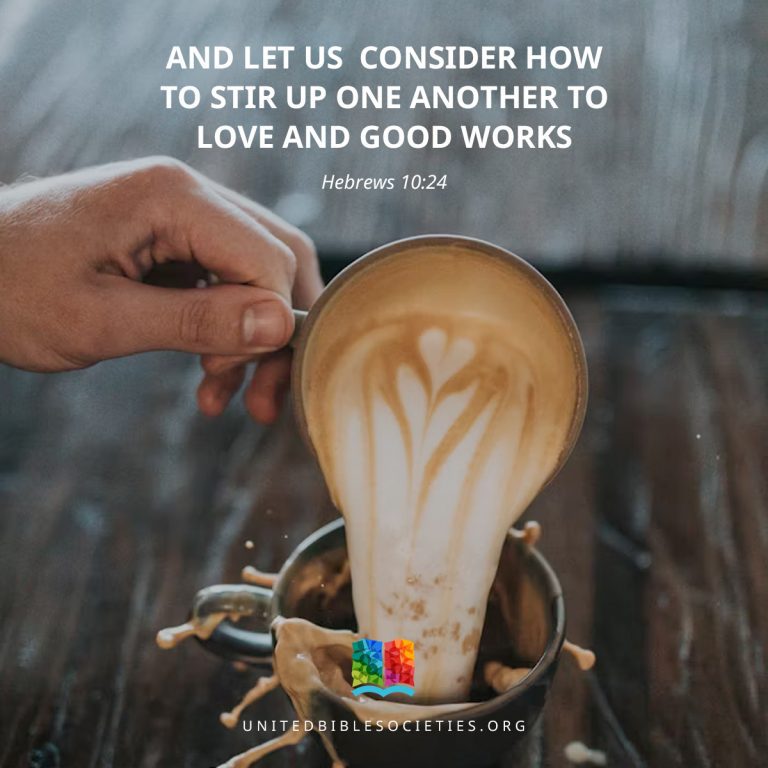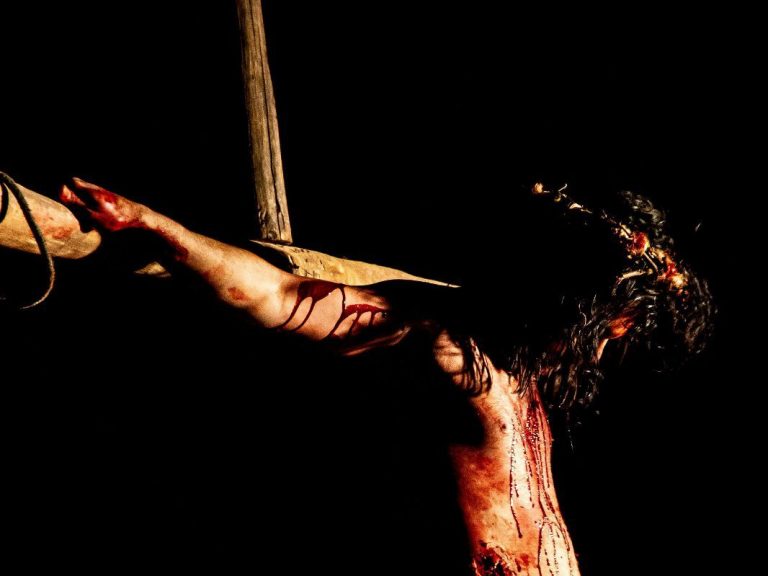Ňäen Ňč…ôwuj…ônu Ňč…ôdŐ∂…ôsa dŐ∂…ôdŐ∂…ôma
(Luka 14:15-24)1 Na Yesu n…ôŇč…ôlwa…Ĺ…ôŠĻĮi ledŐ∂a t…ôŇč ŇčenŇča Ňč…ôwuj…ônu n…ôŇčaŠĻĮa, 2 ‚ÄúŇäen Ňč…ôŇč…ôl…ôŇče Ňčelo Ňčarno Ňčen Ňčel…ôŇč g…ôn…ôŇč gidŐ∂u dŐ∂…ôsa dŐ∂o…Ĺra Ňčen ŇčanŠĻĮa idŐ∂ia g…ôl√ę…Ĺ…ôŇču gamaŠĻĮa wasen e…Ĺa. 3 Na el…ôŇč n…ôŇč…ôdŐ∂waŠĻĮe l…ôbai ŠĻĮa al…ôlwa…Ĺ…ôŠĻĮi ledŐ∂a ildi lund…ôdŐ∂…ônu ŠĻĮa alela, orn ledŐ∂a ld…ônedŐ∂e leŠĻĮo. 4 Na el…ôŇč n…ôŇč…ôdŐ∂waŠĻĮe l…ôbai t…ôŇč n…ôŇčaŠĻĮa, ‚ÄėMb…ôr √Īalwa…Ĺ…ôŠĻĮi ledŐ∂a ildi lund…ôdŐ∂…ônu ŠĻĮa, Seicr, egaŠĻĮo…ĹaŠĻĮo dŐ∂…ôsa dŐ∂…ôge. √Ď…ônŠłŹ…ôri na dŐ∂wala dŐ∂…ôdŐ∂…ôwo dŐ∂a…Ĺi√Ī…ônu na laŇčge predŐ∂ laŠĻĮu…Ĺeinu. Elar √Īase!‚Äô 5 Orn ledŐ∂a ld…ôdŐ∂am…ôce el…ôŇč eŇčen ldab…ôŠĻĮa alo yerto. EdŐ∂a g…ôn…ôŇč gab…ô…Ĺo igii na g…ôn…ôŇč gab…ô…Ĺo eŠłŹokan dŐ∂…ôl√ę…Ĺ…ôŇču. 6 Na ledŐ∂a ildi l…ôŠĻĮ√ęnu ld√ęndi l…ôbai ld…ôlnaice Ňčen Ňčubwa Ňčeicia ld…ôl…ô…Ĺi√Īe. 7 Nd…ô el…ôŇč g…ôno Ňčen ŠĻĮia n…ôŇč…ôciŠĻĮano kai√Ī n…ôŇč…ôdŐ∂waŠĻĮe askari il√ę…Ĺ…ôŇču niy…ô…Ĺi√Īe ledŐ∂a ildi l…ô…Ĺi√Īo l…ôbai niyu…Ĺi irnuŇč gegen. 8 NŠĻĮia n…ôŇč…ôlwa…Ĺ…ôŠĻĮi l…ôbai ŠĻĮa, ‚Äėńź…ôsa dŐ∂…ôdŐ∂…ôma dŐ∂aŠĻĮu…Ĺeinu orn ledŐ∂a ildi lund…ôdŐ∂…ônu lero l…ôr…ôjadŐ∂aŠĻĮa eŇčen ŠĻĮa al…ôse. 9 Mb…ôr eradŐ∂ predŐ∂ rirnuŇč √Īurnd…ôdŐ∂ia ledŐ∂a ildi √Īag…ôl…ôfidŐ∂ia ŠĻĮa aleŠĻĮa nŠłŹ…ôsa‚Äô. 10 NŠĻĮia l…ôbai ld…ô…Ĺe eradŐ∂ ld…ômama ledŐ∂a predŐ∂ ildi l…ôfidŐ∂…ôlo ildi leicia na l…ôŇč…ôra. Na e…Ĺa n…ôŇčunŠłŹeini ledŐ∂a ano laij…ôbaŠĻĮo.
11 ‚ÄúNa nd…ô el…ôŇč geŠĻĮo ŠĻĮa aŇč…ôseici ledŐ∂a ildi lund…ôdŐ∂…ônu, n…ôŇč…ôseici edŐ∂a g…ôn…ôŇč igi gero erenia nano g…ôdŐ∂…ôma, 12 n…ôŇč…ômeiŠĻĮi ŠĻĮa, ‚ÄėOrai√Ī, ag√ęnŠĻĮu ŠĻĮau alo isi erenia geraŇča nano g…ôdŐ∂…ôma?‚Äô Orn edŐ∂a n…ôŇč…ôbwai√Īe Ňč…ôma. 13 Orn el…ôŇč n…ôŇčeiŠĻĮi l…ôbai ŠĻĮa, ‚ÄėAkas…ômar r…ôŇč na r…ôman…ô√Īa √Īam√ęuw…ôŠĻĮi iŇč…ôr…ôm nd√ęuw…ôr. ńźara na dŐ∂…ôsaŠĻĮa eŇčadŐ∂ lidŐ∂i al…ôfeŠĻĮe‚Äô. 14 Ňäen ŇčanŠĻĮa ledŐ∂a lwai√Īa lund…ôdŐ∂…ônu orn l…ôt√ęfr luŠĻĮ…ônu.‚ÄĚ
Ňäen Ňč…ôdŐ∂e…Ĺ…ôdŐ∂ia eŇčen Ňč…ôdŐ∂…ônaidŐ∂ia ŠĻĮolba
(Margus 12:13-17Luka 20:20-26)15 Na Alfarisiyin niye…Ĺe ŠĻĮai…ĹwataidŐ∂o ŠĻĮa aiy…ôfidŐ∂i Ňčen Ňč…ôn…ôŇč g…ôlwa…Ĺo m…ônna aiy…ôm√ęundeici. 16 Oro niyemadŐ∂weiŠĻĮi ŠĻĮal…ômis esen Ňču nano ledŐ∂ala l√ęl…ôŇč IruŠłŹus na l√ęn…ôŇčulu ld…ôme…Ĺ…ôdŐ∂e ldaŠĻĮa, ‚ÄúYa EdŐ∂a g…ôb√ęrr…ôŇčaidŐ∂ia Ňčen, √Īagal…ôŇčeŠĻĮo ŠĻĮa f…ôŇča dŐ∂eŠĻĮ…ôm. Ag…ôb√ęrr…ôŇčaicia ledŐ∂a Ňčen Ňč…ô-R…ômwa radŐ∂…ôra r…ôdŐ∂eŠĻĮ…ôm na agaber ag…ôb…ô…Ĺ…ôca Ňčeniano Ňč…ôledŐ∂a, Ňčen ŇčanŠĻĮa agaber ag…ôseicia Ňč…ôm√ę…Ĺria Ňč…ôledŐ∂a. 17 NŠĻĮia lwa…Ĺ…ôŠĻĮ…ônde agaŠĻĮau? Alganun yabaŠĻĮa ŠĻĮa Ňčen Ňč√ępi nd…ô √Īag…ônanaica el…ôŇč go…Ĺra g…ô-Roma ŠĻĮolba walla Ňčen Ňčafo m…ônna?‚ÄĚ 18 Orn Yesu n…ôŇč…ôl…ôŇčeŠĻĮe Ňčen eŇčen Ňčeicia n…ôŇčaŠĻĮa, ‚ÄúYa ledŐ∂a √Ī…ôŇčgi √ĪagerŠĻĮo Ňčen Ňč…ô…Ĺijan, √Īagai√ĪinŠłŹeicia edŐ∂a? 19 AŇčaic…ô√Īr g…ôrus yeŠĻĮolba.‚ÄĚ Na ledŐ∂a ld…ômanaice g…ôrus yarno lkairia, 20 na Yesu n…ôŇč…ôle…Ĺ…ôdŐ∂e n…ôŇčaŠĻĮa, ‚ÄúSura y…ôs√ęgi isi na Ňčw√ę…Ĺi√Īa Ňč…ôs√ęgi n…ôg…ôrus?‚ÄĚ 21 L√ęn…ôŇčulu ld…ômeiŠĻĮi ŠĻĮa, ‚ÄúŇä-El…ôŇč go…Ĺra g…ô-Roma.‚ÄĚ Orn g√ęn…ôŇču n…ôŇč…ôlwa…Ĺ…ôŠĻĮi ŠĻĮa, nŠĻĮia, ‚ÄúNaicr El…ôŇč go…Ĺra g…ô-Roma laŇčge ildi …ôll√ę…Ĺ…ôŇču, na naicr R…ômwa laŇčge ildi …ôll√ę…Ĺ…ôŇču.‚ÄĚ 22 Nd…ô l…ôno Ňčen iŇči, l√ęn…ôŇčulu ldir…ôwano kai√Ī ld…ômaŇčgiŠĻĮi ldab…ôla.
Ňäen Ňč…ôdŐ∂e…Ĺ…ôdŐ∂ia eŇčen Ňč…ôdŐ∂…ôtwodŐ∂a eŇč…ô…Ĺai√Ī
(Margus 12:18-27Luka 20:27-40)23 Eloman lak…ôl ledŐ∂a l…ômaŠĻĮan i-SaŠłŹŠłŹugiyin isi yebaŠĻĮa ŠĻĮa dŐ∂…ôtwodŐ∂a eŇč…ô…Ĺai√Ī dŐ∂ero, ldeŠĻĮa Yesu nano ld…ôme…Ĺ…ôdŐ∂e ldaŠĻĮa, 24 ‚ÄúYa EdŐ∂a g…ôb√ęrr…ôŇčaidŐ∂ia Ňčen, Musa gaŠĻĮa ŠĻĮa, ‚ÄėNd…ô edŐ∂a g…ôn…ôŇč gerŠĻĮo wasen, orn n…ôŇčaiye √Īere √Īero, or…ôba g…ôl√ę…Ĺ…ôŇču gidŐ∂i aŇč…ôme wasen aŇč…ômal…ôŇč…ôŠĻĮi √Īere‚Äô. 25 LdaŠĻĮa t…ôŇč, lor…ôba lafo dŐ∂en…ôŇč ld…ôm…ô√Īe l…ô…Ĺijan. Or…ôba g…ôn√ęi√Īua garno wasen orn n…ôŇčaiye √Īere √Īero, n…ôŇčgiŠĻĮi wasen Ňčen ŇčanŠĻĮa or…ôba gwom…ôn. 26 Na or…ôba n…ôŇč…ôrraŠĻĮe igwuji orn n…ôŇčaiye √Īere √Īero, na or…ôba gwom…ôn gidŐ∂u ŠĻĮia com, na lor…ôba predŐ∂ ldam…ôladŐ∂e igwuji ldaiye √Īere √Īero. 27 Na nŠłŹurŠĻĮalo wuji n…ôŇčaiye com. 28 Iliga l…ôdŐ∂…ôtwodŐ∂a eŇč…ô…Ĺai√Ī wuji gidŐ∂i aŇč…ô…ĹeŠĻĮe wasen g…ôs√ęgi? Ňäen ŇčanŠĻĮa l√ęn…ôŇčulu lafo lamamo predŐ∂.‚ÄĚ
29 Orn Yesu n…ôŇč…ôlu…Ĺ…ôbiŠĻĮi eŇčen n…ôŇčaŠĻĮa, ‚Äú√Ďagafo m…ônna kai√Ī edŐ∂a! Ňäen ŇčanŠĻĮa √Īagaij…ôba adŐ∂am g…ô-R…ômwa na Ňčab…ô…Ĺa Ňč…ô-R…ômwa com. 30 Ňäen ŇčanŠĻĮa ledŐ∂a lidŐ∂i l…ôtwodŐ∂o eŇč…ô…Ĺai√Ī l√ęn…ôŇčulu laber lidŐ∂i almam…ôdŐ∂e na laber lidŐ∂i almam…ôni, orn lidŐ∂i alarneŠĻĮe malaiy…ôka isi yefo elo. 31 Na eŇčen Ňč…ôdŐ∂…ôtwodŐ∂a eŇč…ô…Ĺai√Ī, √Īagero √Īag…ôb√ęg…ôria Ňčen R…ômwa r…ôlwa…Ĺ…ôŠĻĮ…ônde, 32 ‚ÄėIg√ęn…ô√Īi ega…Ĺo R…ômwa r-Ibrayim na ega…Ĺo R…ômwa r-Isag na ega…Ĺo R…ômwa r…ô-Yagub‚Äô. R√ęn…ôŇču rero r…ô…Ĺia R…ômwa r…ôledŐ∂a ildi laiyo orn ra…Ĺo R…ômwa r…ôledŐ∂a ildi l…ôm…ôŠĻĮia.‚ÄĚ 33 Na nd…ô ledŐ∂a l…ôno Ňčen iŇči n…ôŇčen n…ôŇč…ôlaj…ôbinŠĻĮi Ňčen ŇčanŠĻĮa dŐ∂√ęrr…ôŇčaidŐ∂ia dŐ∂…ôl√ę…Ĺ…ôŇču.
Ňäen Ňč…ôdŐ∂e…Ĺ…ôdŐ∂ia eŇčen Ňč…ô…Ĺ…ônda ig-Alganun
(Margus 12:28-34Luka 10:25-28)



34 Nd…ô Alfarisiyin yeno ŠĻĮa Yesu gidŐ∂u AsaŠłŹŠłŹugiyin yebwai√Īa Ňč…ôma y√ęn…ôŇčulu niyerraidŐ∂e ld…ô…Ĺo, 35 na edŐ∂a g…ôn…ôŇč iŇčulu g…ô…Ĺo edŐ∂a g…ôb√ęrr…ôŇčaidŐ∂ia Ňčen Ňč-Alganun n…ôŇč…ôminŠłŹeici n…ôŇč…ôme…Ĺ…ôdŐ∂e. 36 N…ôŇčaŠĻĮa, ‚ÄúYa EdŐ∂a g…ôb√ęrr…ôŇčaidŐ∂ia Ňčen, f…ôŇčen ŇčaŇčga ig-Alganun Ňč…ô…Ĺ…ônda elor…ôb predŐ∂?‚ÄĚ 37 Na Yesu n…ôŇč…ômu…Ĺ…ôbiŠĻĮi eŇčen n…ôŇčaŠĻĮa, ‚ÄúBwiŠĻĮu El…ôŇč R…ômwara r…ôla…Ĺ…ôŇča araga predŐ∂ na usilaga predŐ∂ na Ňč…ôŠĻĮ…ô…ĹaŇča predŐ∂. 38 F…ôŇčen Ňč…ôn√ęi√Īua ig-Alganun yi-R…ômwa na Ňč…ô…Ĺ…ônda elor…ôba. 39 Na f…ôŇčen Ňč…ô…Ĺaico or…ôba g…ô…Ĺijan ig-Alganun ŠĻĮa, ‚ÄėBwiŠĻĮu edŐ∂aga igi g…ô…Ĺo √ęuw…ôr garno etam g…ôla…Ĺ…ôŇča‚Äô. 40 Ňäen iŇči Ňč…ô…Ĺijan Ňča…Ĺo adŐ∂una ig-Alganun predŐ∂ yi-Musa na eŇčen predŐ∂ Ňčalan…ôbiya.‚ÄĚ
Ňäen Ňč…ôdŐ∂e…Ĺ…ôdŐ∂ia eŇčen Ňč-Almasiya
(Margus 12:35-37Luka 20:41-44)41 Nd…ô Alfarisiyin yerraidŐ∂o ld…ô…Ĺo, Yesu n…ôŇč…ôle…Ĺ…ôdŐ∂e, 42 n…ôŇčaŠĻĮa, ‚Äú√ĎagaŠĻĮau eŇčen Ňč-Almasiya? G√ęn…ôŇču ga…Ĺo IdŐ∂ia g…ôs√ęgi?‚ÄĚ Y√ęn…ôŇčulu nimeiŠĻĮi ŠĻĮa, ‚ÄúAlmasiya ga…Ĺo IdŐ∂ia g…ô-ŠłéawuŠłŹ.‚ÄĚ 43 G√ęn…ôŇču n…ôŇč…ôleiŠĻĮi ŠĻĮa, ‚ÄúNd…ô Ňčen Ňč…ôfo ŠĻĮia, Ňčen ŇčanŠĻĮau Usila G…ôt…ô…Ĺe g…ônaico ŠłéawuŠłŹ Ňčen n…ôŇč…ôm√ęn…ôci, ‚ÄėEl…ôŇč‚Äô? 44 G√ęn…ôŇču gaŠĻĮa,
‚ÄėEl…ôŇč R…ômwa ralwa…Ĺ…ôŠĻĮu El…ôŇč R…ômwa r…ôl√ę…Ĺ…ô√Īi ŠĻĮa,
…ĹaŇčo alo nŠłŹ…ôŇč dŐ∂…ôŇčaic…ôba dŐ∂…ôl√ę…Ĺ…ô√Īi
Ňčen ig…ômulu ig…ôb√ę…Ĺia ledŐ∂a ildi l…ôgeiyaŇča alo
er…ôman…ô√Īa idŐ∂urŠĻĮu r…ôla…Ĺ…ôŇča‚Äô.
45 Nd…ô ŠłéawuŠłŹ g√ęn…ôcu Almasiya ‚ÄėEl…ôŇč‚Äô. Ňäen ŇčanŠĻĮau g…ô…Ĺia IdŐ∂ia g…ôl√ę…Ĺ…ôŇču?‚ÄĚ 46 Na edŐ∂a gero g…ôn…ôŇč g…ô…ĹwadŐ∂aŠĻĮa g…ômu…Ĺ…ôbiŠĻĮia eŇčen kwai kwai, na ledŐ∂a predŐ∂ ld…ôm√ędŐ∂…ô√ĪiŠĻĮi lderŠĻĮe l…ôme…Ĺ…ôdŐ∂ia Ňčen Ňč…ôn…ôŇč t…ôŇč.
The Great Banquet
(Luke 14.15-24)1 Once again Jesus used stories to teach the people:
2 The kingdom of heaven is like what happened when a king gave a wedding banquet for his son. 3 The king sent some servants to tell the invited guests to come to the banquet, but the guests refused. 4 He sent other servants to say to the guests, ‚ÄúThe banquet is ready! My cattle and prize calves have all been prepared. Everything is ready. Come to the banquet!‚ÄĚ
5 But the guests did not pay any attention. Some of them left for their farms, and some went to their places of business. 6 Others grabbed the servants, then beat them up and killed them.
7 This made the king so furious that he sent an army to kill those murderers and burn down their city. 8 Then he said to the servants, ‚ÄúIt is time for the wedding banquet, and the invited guests don't deserve to come. 9 Go out to the street corners and tell everyone you meet to come to the banquet.‚ÄĚ 10 They went out on the streets and brought in everyone they could find, good and bad alike. And the banquet room was filled with guests.
11 When the king went in to meet the guests, he found that one of them wasn't wearing the right kind of clothes for the wedding. 12 The king asked, ‚ÄúFriend, why didn't you wear proper clothes for the wedding?‚ÄĚ But the guest had no excuse. 13 So the king gave orders for this person to be tied hand and foot and to be thrown outside into the dark. That's where people will cry and grit their teeth in pain. 14 Many are invited, but only a few are chosen.
Paying Taxes
(Mark 12.13-17Luke 20.20-26)15 The Pharisees got together and planned how they could trick Jesus into saying something wrong. 16 They sent some of their followers and some of Herod's followers to say to him, ‚ÄúTeacher, we know that you are honest. You teach the truth about what God wants people to do. And you treat everyone with the same respect, no matter who they are. 17 Tell us what you think! Should we pay taxes to the Emperor or not?‚ÄĚ
18 Jesus knew their evil thoughts and said, ‚ÄúWhy are you trying to test me? You show-offs! 19 Let me see one of the coins used for paying taxes.‚ÄĚ They brought him a silver coin, 20 and he asked, ‚ÄúWhose picture and name are on it?‚ÄĚ
21 ‚ÄúThe Emperor's,‚ÄĚ they answered.
Then Jesus told them, ‚ÄúGive the Emperor what belongs to him and give God what belongs to God.‚ÄĚ 22 His answer surprised them so much that they walked away.
Life in the Future World
(Mark 12.18-27Luke 20.27-40)23 The Sadducees did not believe people would rise to life after death. So that same day some of the Sadducees came to Jesus and said:
24 Teacher, Moses wrote that if a married man dies and has no children, his brother should marry the widow. Their first son would then be thought of as the son of the dead brother.
25 Once there were seven brothers who lived here. The first one married, but died without having any children. So his wife was left to his brother. 26 The same thing happened to the second and third brothers and finally to all seven of them. 27 At last the woman died. 28 When God raises people from death, whose wife will this woman be? She had been married to all seven brothers.
29 Jesus answered:
You are completely wrong! You don't know what the Scriptures teach. And you don't know anything about the power of God. 30 When God raises people to life, they won't marry. They will be like the angels in heaven. 31 And as for people being raised to life, God was speaking to you when he said, 32 ‚ÄúI am the God worshiped by Abraham, Isaac, and Jacob.‚ÄĚ He isn't the God of the dead, but of the living.
33 The crowds were surprised to hear what Jesus was teaching.
The Most Important Commandment
(Mark 12.28-34Luke 10.25-28)34 After Jesus had made the Sadducees look foolish, the Pharisees heard about it and got together. 35 One of them was an expert in the Jewish Law. So he tried to test Jesus by asking, 36 ‚ÄúTeacher, what is the most important commandment in the Law?‚ÄĚ
37 Jesus answered:
Love the Lord your God with all your heart, soul, and mind. 38 This is the first and most important commandment. 39 The second most important commandment is like this one. And it is, ‚ÄúLove others as much as you love yourself.‚ÄĚ 40 All the Law of Moses and the Books of the Prophets are based on these two commandments.
About David's Son
(Mark 12.35-37Luke 20.41-44)41 While the Pharisees were still there, Jesus asked them, 42 ‚ÄúWhat do you think about the Messiah? Whose family will he come from?‚ÄĚ
They answered, ‚ÄúHe will be a son of King David.‚ÄĚ
43 Jesus replied, “How then could the Spirit lead David to call the Messiah his Lord? David said,
44 ‚ÄėThe Lord said to my Lord:
Sit at my right side
until I make your enemies
into a footstool for you.’
45 If David called the Messiah his Lord, how can the Messiah be a son of King David?‚ÄĚ 46 No one was able to give Jesus an answer, and from that day on, no one dared ask him any more questions.

